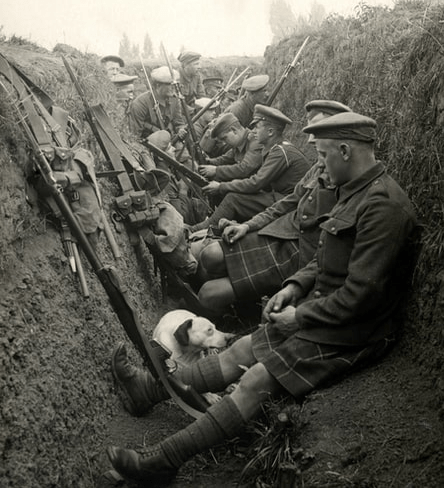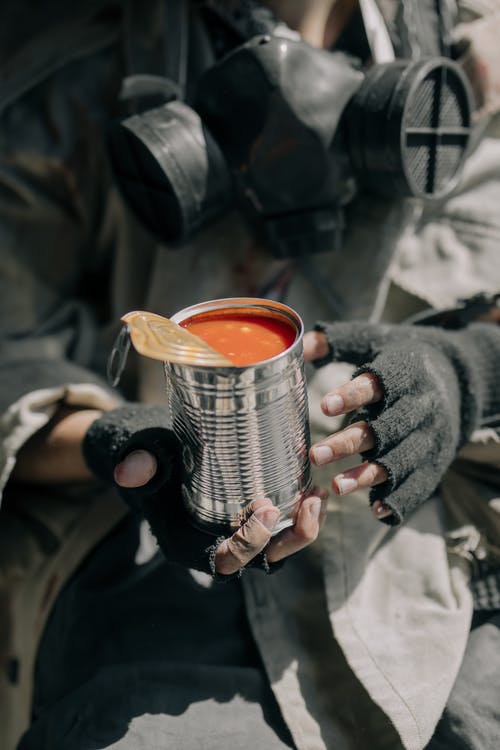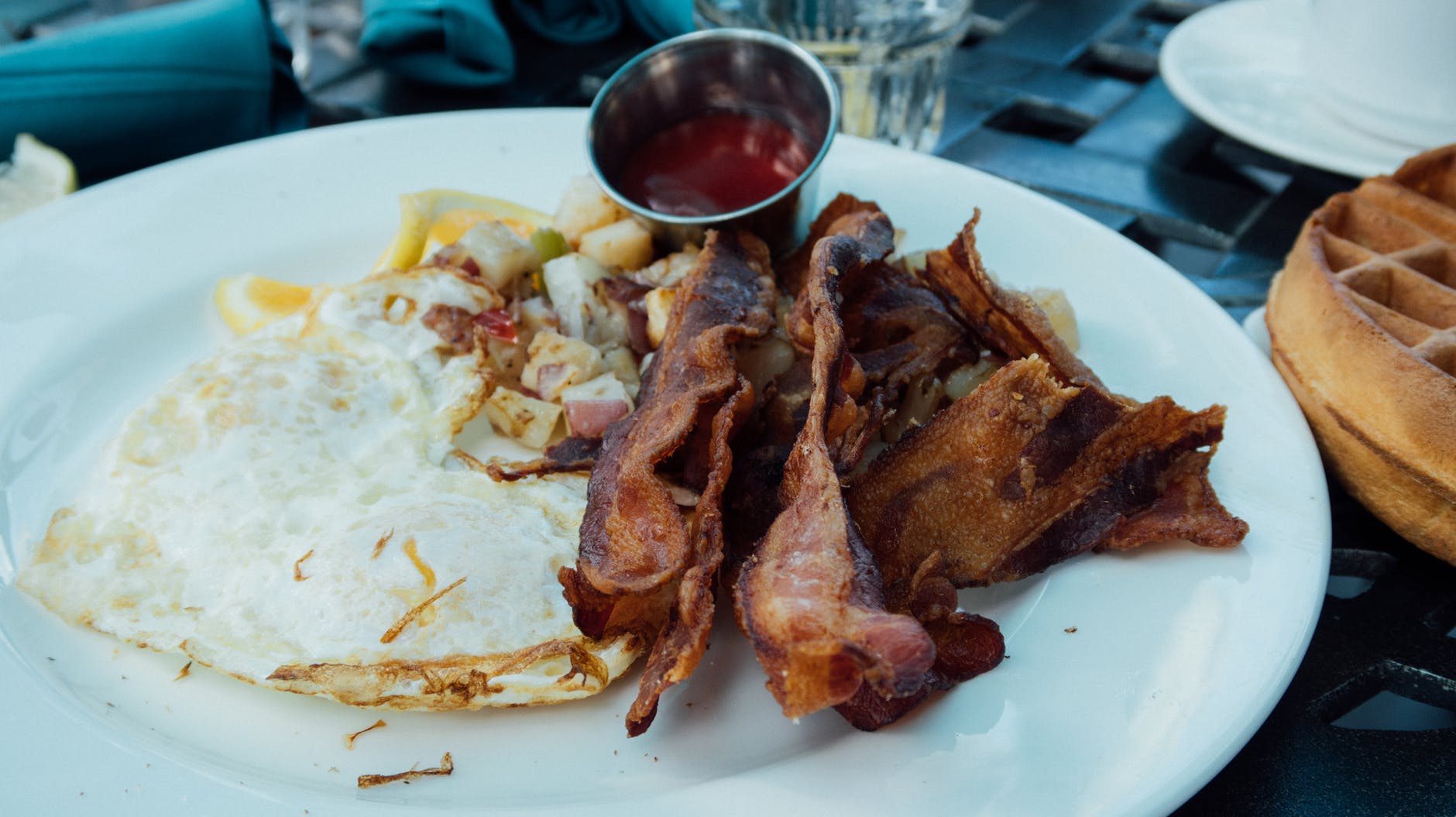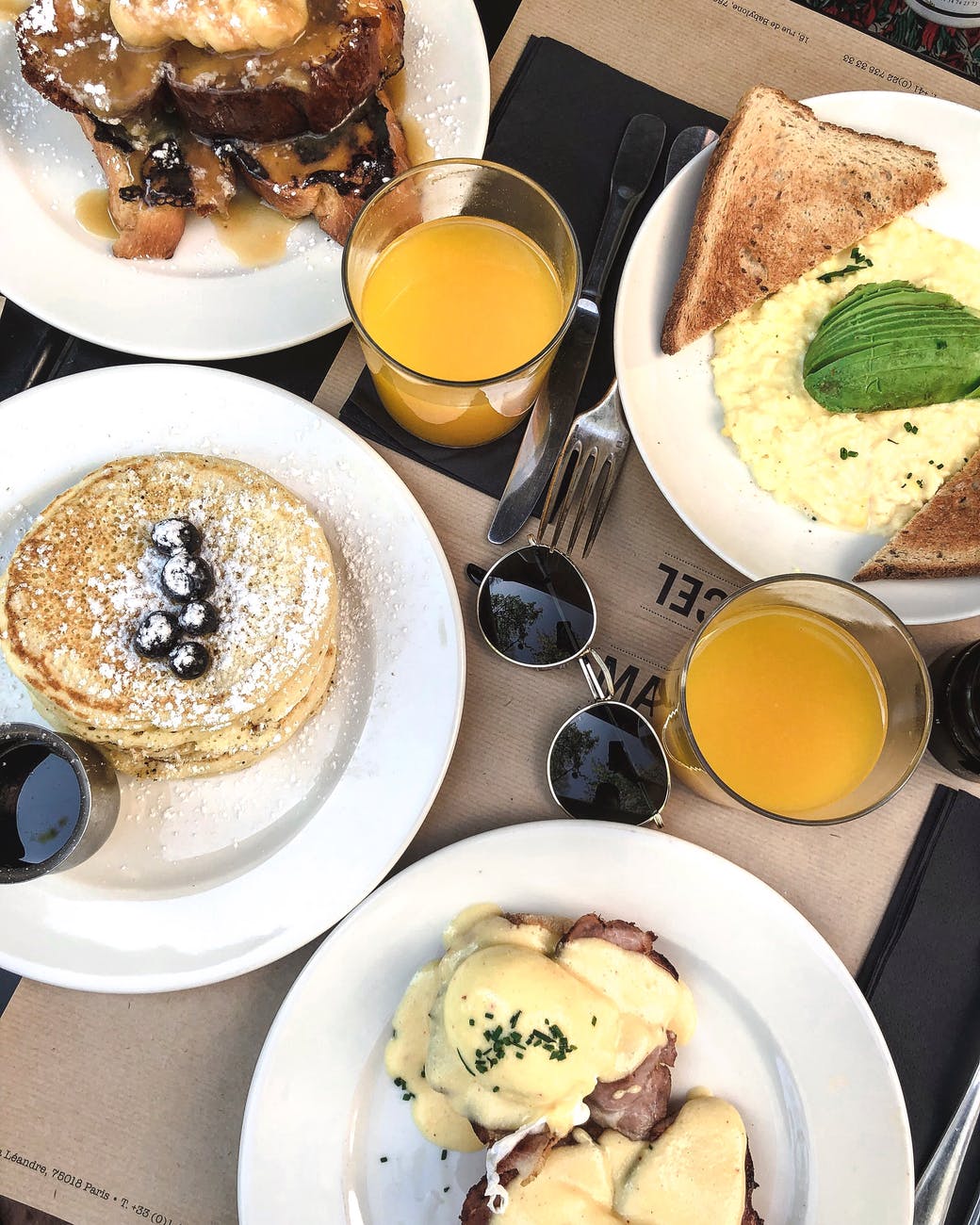World war II pilots needed fuel to survive and get through the day successfully. Thus, it was important that they had enough calories to get them started with the day. Also, to sustain them throughout. These pilots needed to be at their very best. Thus, it is important that the breakfast that these pilots consumed had enough calories and were satiating too.
It is important to note, however, that there was a set ration for the army that changed infrequently. The food, that they were to survive on, was pre-packaged and made to be non-perishable. It was also divided into tiered rations. They ranged from A to C, and then there was a K-ration. When they could not be in their camps with mess halls, these pilots and soldiers had to carry around rations that were known as C-Rations.
C-Ration
C- Rations were developed back in 1938, and they acted as a replacement for the reserve rations used in world war 1. The intended use of the C rations was when fresh food, the A-ration, or unprepared food, the B-ration, which was usually prepared in mess halls or in field kitchens, was not available. C- rations were obviously not as nutritious as those, but it was better than the survival ration. These survival rations included K-ration or D-ration. These two rations did not have enough calories and were insufficient for most soldiers and pilots.
The main components of the C-Rations were canned corned beef or bacon along with plenty of cans of hardtack biscuits. These rations also included ground coffee, salt, and sugar. As an added bonus, there was also tobacco and rolling paper. The ingredients did not offer much variety for the pilots as they had to survive on only these items.
The decision that ruled the inclusion of these foods was; till how long these foods would stay fresh. Since the foods had to be kept for long periods of time, they should be both nutritious and non-perishable.
The design of the cans that the C- Rations came in was a 12-ounce tinplate can. These cans had light tops and could be opened using a key. The meals in these rations started with stews. As the war progressed, more variety of food was added. The meals now also included chopped ham, meat, and noodles along with spaghetti and tomato sauce and so on. Additionally, the pilots also got added treats such as chocolate or candies such as gum. Biscuits and cigarettes were also included in the rations.
These rations could be eaten cold or cooked and contained 3700 calories total.
Most common breakfast for WW2 pilots
The pilots of world war 2 had to make do with the C-Rations or K- Rations when they were out in the field. These rations were canned food that had little variety.
The K- Rations were made for survival purposes. Therefore, the ingredients were quite basic and did not have a high caloric count. Since these rations topped at 2800 calories, the breakfast had a low caloric count for these pilots.
The breakfast included in K- Rations included one dish from a very selected menu. They either had chopped ham and egg, biscuits, dextrose or malted milk tablets or dried fruit bars. Breakfast may also include pre-mixed oatmeal cereal or porridge.
The breakfast of the B- rations also included an added chopped ham, egg, and even potato.
The breakfast of the pilots who fought in World War 2 differed by where they were stationed. If a troop was stationed somewhere with a mess hall or a field kitchen, they usually received breakfast containing porridge that was followed by marmalade and toast. This breakfast was mostly accompanied by tea. Bacon and eggs were also a popular breakfast item, but it was not available to all the pilots and soldiers all the time. It was introduced later as the war progressed.
Some breakfasts that the pilots and soldiers had to eat were not as good as the ones described before. The Red-Army style field rations’ breakfast included a stale pumpernickel break with a side of dried raisins. These were dry and definitely not enough for the Soviet soldiers who had to trek miles and do a lot of physical activity.
These breakfasts, although bland, provided them with the essential nutrients they needed. It is interesting to note whether or not these soldiers would be happy with a carbohydrate-rich breakfast like pancakes. There are many pancake varieties around the world, and they could well have been a possibility had it not been for the lack of flour in the rations.
Are Eggs and Bacon a Healthy Breakfast?
We now know that the pilots and soldiers of World War 2 were accustomed to a breakfast that consisted mainly of eggs and bacon, but the question arises as to whether or not they were actually healthy and could sustain these pilots who had to be on their toes and alert for the entire day? Let’s find out.
Eggs are versatile and are loaded with nutrients. These nutrients make them one of the best foods to have during breakfast. They are high in protein which helps build muscle tissue and maintain them as well. This is perfect for soldiers and pilots who have to work in these grueling conditions. Furthermore, according to studies, eggs are a source of vitamin B, A, D, E, and also K. These vitamins, along with minerals such as phosphorus, make eggs one of the healthiest things you can eat in breakfast. Hence, whoever chose eggs as breakfast in World War 2 was correct in doing so.
The other component of this breakfast is bacon which is made of pork that is sliced into strips. These strips are then soaked in a solution that contains salts and nitrates. They also have something sweet added in, like sugar or maple syrup. Finally, these strips are smoked. This is the basic process of making bacon. However, some companies go a step ahead and use nitrates and artificial colors to speed up the process of bacon making. The resultant bacon has that distinct flavor and taste that bacon is known for.
In terms of nutrition, bacon generally has a higher fat content. These fats are healthy and provide the necessary calories that one needs to start off their day. Bacon is also known to contain oleic acid, which is a heart-healthy fatty acid that is considered essential. It is the same fat that is found in avocados as well.
Bacon is also known to contain saturated fat along with high amounts of sodium which may be detrimental to our health if consumed in excess. These soldiers were consuming them daily. Hence, it may or may not have affected their heart health and cholesterol levels. Most studies recommend bacon, not more than two to three times a week, and two strips of bacon each time. Knowing this recommendation, when compared to what the pilots and soldiers were consuming, we can assume that it might have caused some problems.
Is porridge a Healthy Breakfast?
Porridge is a breakfast item that is made by cooking oats in liquid. This liquid is usually water or milk. This dish is also very versatile as you can add in a lot of different fruits, sweeteners, flavors, and even spices to the oats and make them taste different each time.
Porridge has many health benefits, which is probably why they chose it as one of the staple breakfast items for soldiers and pilots in World War 2. One of the many reasons is that it helps regulate your appetite. The soldiers and pilots needed to be alert and attentive, which is why they could not have hunger ruin their concentration. In that aspect, porridge works very well. It also has complex carbohydrates that do not digest instantly and release their energy in a longer period of time. Additionally, the added protein and fiber are excellent at helping you feel full for longer.
Porridge is also known to keep your immune system strong. As it contains vitamin A, it assists the body in fighting off germs and infections from the body. This is another reason as to why porridge was included. Sick pilots and soldiers were far from what the army wanted.
Furthermore, porridge is a non-perishable good which means that they could store it for long periods of time without worrying about it going bad. This was a huge factor as there was already a food shortage, and large amounts of food going bad would have been catastrophic.
Importance of Breakfast
Having a nutritious breakfast while you are traveling and on the go in a warplane or a fighter jet, it can be difficult. However, breakfast is the most important meal of the day. Because it ‘breaks the fast’ of the entire night, it should be something nutritious that refuels your body and gets you ready for the day ahead of you. The soldiers and pilots that fought in the World War 2 had a difficult job that required them to be active and alert all day long. Hence, it was even more important for them to be ready to face whatever the day threw at them.
Studies have shown that breakfast is important and valuable in terms of cognitive function as well as improved productivity. Therefore, those who have breakfast are able to perform their tasks better throughout the day. They are alert and think better. This is incredibly necessary on the battlefield, which is why it was essential that the soldiers and pilots of World War 2 had an adequate breakfast.
Breakfast is also known to boost energy levels. Studies confirm that those who eat a substantial breakfast have more energy throughout the day and generally perform better at physical tasks than those who do not. Therefore, fatigue and unnecessary weight gain are avoidable if one has a decent breakfast.
Conclusion
In World War 2, food was limited, and people had to make do with almost the same breakfast each day. Breakfast items that we consider normal like waffles and pancakes were unheard of. Rather, they ate bacon, eggs, or porridge mostly. There was some variety as the war went on, but mostly, the menu remained the same. This was due to rationing.
However, the breakfast that they received was according to the requirements and was substantial enough for these soldiers and pilots to have a good and nutritious start to their day.




